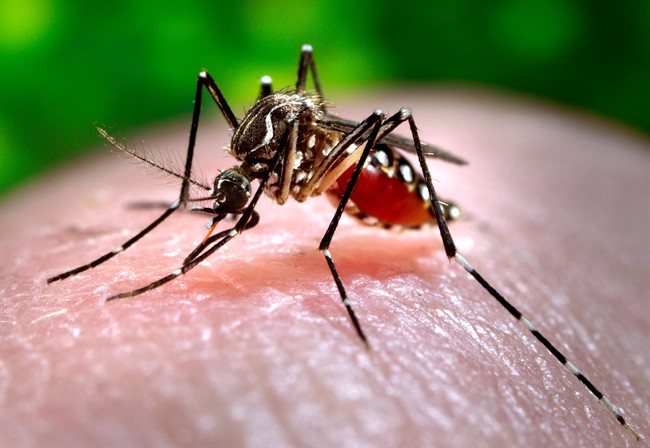SASKATOON – The annual mosquito control campaign is underway in Saskatoon. Crews have already begun working this spring to reduce the amount of those pesky insects.

According to the city, warm April weather in recent years has led to mosquitoes developing faster but dry conditions has decreased their habitat.
Mosquito control will continue throughout the summer which will also target Culex tarsalis, the main carrier of West Nile virus in the province. The virus can be transmitted if an infected mosquito bites a person.
Health Canada says 70 to 80 per cent of people who contract West Nile experience no symptoms but it can cause serious illness and there are only a few ways to treat it.
READ MORE: Mosquito-eating bat population on the decline: conservationist
Pest management staff regularly monitor approximately 945 square kilometres of mosquito habitat in Saskatoon and a surrounding buffer.
The city’s program focuses on the aquatic life stage of the mosquito – the larvae. A biological pesticide is applied to identified bodies of water using a backpack sprayer.
READ MORE: Covered in mosquito bites? Blame your genes, study suggests
Saskatoon residents can do their part to make reduce the amount of nuisance mosquitoes flying around this summer by eliminating breeding sites on properties. Larvae can develop in water that is allowed to stand for four days or more.
To help control the mosquito population:
- Remove standing water
- Clean eaves troughs regularly
- Ensure openings in rain barrels are covered with mosquito screening
While the campaign will provide some protection, it will not eliminate the risk of contracting West Nile virus. Therefore, people should protect themselves from getting mosquito bites.
Health Canada advises people to use insect repellents that contain the chemicals diethyltoluamide (DEET) or Icaridin.
Other ways to prevent being bitten include:
- Covering up with clothing
- Avoid being outside at dusk and dawn as that’s when mosquitoes are most active
- Making sure the insects don’t get inside your home
For more information about West Nile, contact Health Canada at 1-800-816-7292 or Saskatchewan Health at 1-800-667-7766.


Comments